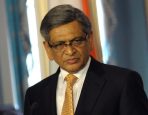
Recognise news media as ‘essential service’ to stop COVID-19 ‘disinfodemic’: UNESCO
PTI, Apr 14, 2020, 1:02 PM IST

image for representation
United Nations: The UNESCO has said news media should be recognised and supported by all governments as an “essential service” to stop the COVID-19 “disinfodemic” that is putting lives at risk.
“There seems to be barely an area left untouched by disinformation in relation to the COVID-19 crisis, ranging from the origin of the coronavirus, through to unproven prevention and ‘cures’, and encompassing responses by governments, companies, celebrities and others,” Guy Berger, Director for Policies and Strategies regarding Communication and Information at the UN educational, Scientific and Cultural Organization (UNESCO), said in an interview with the UN News.
According to the UN, unreliable and false information is spreading around the world to such an extent that some commentators are now referring to the new avalanche of misinformation that’s accompanied the COVID-19 pandemic as a “disinfodemic”.
Berger said UNESCO is particularly urging governments “not to impose restrictions on freedom of expression that can harm the essential role of an independent press, but to recognise journalism as a power against disinformation even when it publicises verified information and informed opinion that annoys those in power.
“There is a strong case to be made that the media deserves to be recognised and supported by governments as an essential service at this time.”
He stressed that the need of the hour is to improve the supply of truthful information and ensure that the demand is met.
“We are underlining that governments, in order to counter rumours, should be more transparent, and proactively disclose more data, in line with Right to Information laws and policies. Access to information from official sources is very important for credibility in this crisis.
“However, this is not a substitute for information supplied by the news media, so we are also intensifying our efforts to persuade authorities to see free and professional journalism as an ally in the fight against disinformation, especially because the news media works openly in the public sphere, whereas much disinformation is under-the-radar, on social messaging apps,” Berger said.
The UNESCO official also pointed to a more harmful example of disinformation: encouraging the taking of medication, approved for other purposes, but not yet clinically proven as being effective against COVID-19.
He said unfortunately some have capitalised on the pandemic, to spread disinformation for the purposes of advancing their own agendas.
“The motives for spreading disinformation are many, and include political aims, self-promotion, and attracting attention as part of a business model. Those who do so, play on emotions, fears, prejudices and ignorance, and claim to bring meaning and certainty to a reality that is complex, challenging and fast-changing,” Berger said.
He said in a time of “high fears, uncertainties and unknowns”, there is “fertile ground for fabrications to flourish and grow”. The big risk is that any single falsehood that gains traction can negate the significance of a body of true facts.
“When disinformation is repeated and amplified, including by influential people, the grave danger is that information which is based on truth, ends up having only marginal impact,” he said.
Berger noted that some people believe, wrongly, that young people or those of African descent are immune (some disinformation has a racist, or xenophobic, tone), and that those in warm climates or countries where summer is on its way, do not need to worry too much.
The likely consequence, he said, is complacency, which could fuel more premature deaths.
However, not everyone responsible for spreading untruths is doing so maliciously and well-intentioned people are also uncritically circulating dubious content, the UNESCO official said.
“These different motives require different responses, but we should not lose sight of the fact that, irrespective of intention, the effect of sharing falsehoods is to disinform and disempower the public, with deadly potential,” he said.
UNESCO has underscored that the rights to freedom of expression and access to information are the best remedies to the dangers of disinformation.
These rights “enable governments and the public to take evidence-based decisions about reality, and to put in place responses that are founded on both science and human rights values, and which can get us through the pandemic in the best way”, Berger said.
Udayavani is now on Telegram. Click here to join our channel and stay updated with the latest news.
Top News
Related Articles More

Pakistan’s Foreign Minister Ishaq Dar appointed as deputy prime minister

Elon Musk in Beijing amid efforts to promote Tesla’s autonomous driving tech

Retrial of Harvey Weinstein unlikely to occur soon, if ever, experts say

Three women from India killed in US car crash; their Gujarat village holds prayer meeting

China says talks on Tibet only with Dalai Lama’s representatives; rules out dialogue on autonomy
MUST WATCH
Latest Additions

Hunasagi: MLA Bairati Basavaraj’s car overturned

No CM can remain absent for long, it’s against national interest: Delhi HC on Kejriwal

Cricket for the Blind: A Transformative Journey Empowering Visually Impaired Athletes

China lifts restrictions, gives all clear nod for Tesla cars as Musk lobbies hard in surprise visit to Beijing

Veteran politician S M Krishna hospitalised, undergoing treatment for ‘minor ailment’

























